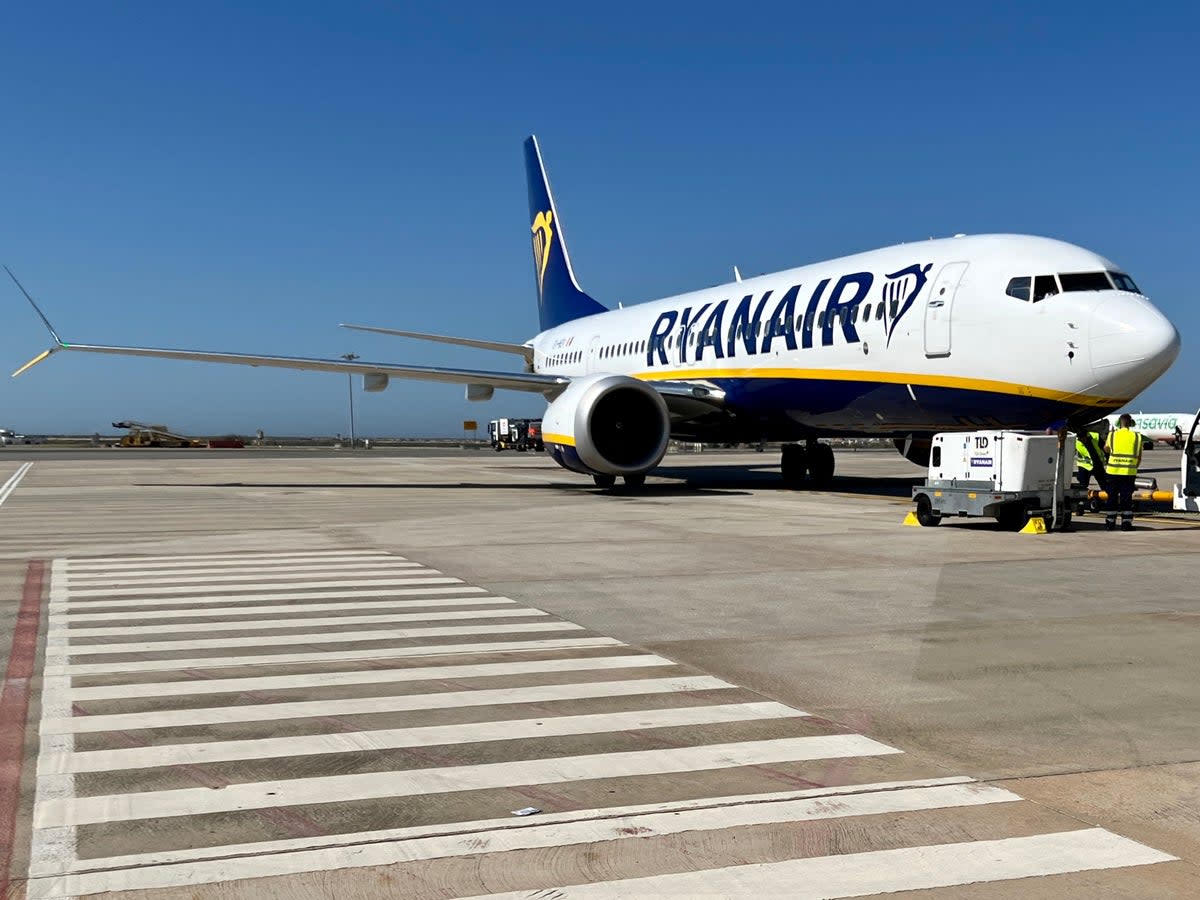Boeing 737 Max: Ryanair boss made ‘loud complaints’ about lack of quality control

Michael O’Leary, chief executive of Ryanair, has revealed the airline complained loudly about faults on newly delivered Boeing 737 Max aircraft – including a spanner found under the floor on one jet.
But the boss of Europe’s biggest budget carrier offered his “full confidence” in his opposite number at the troubled US planemaker.
At Boeing’s request Ryanair has doubled the number of engineers it assigns to the US to check quality of new planes.
On Friday 6 January, a door plug blew out from the fuselage of an Alaska Airlines Boeing 737 Max 9 shortly after take off from Portland, Oregon.
The plane immediately depressurised and the pilots declared an emergency. All 177 passengers and crew aboard flight AS1282 landed safely back at Portland.
The entire fleet of Boeing 737 Max 9 aircraft flying in the US has been grounded for inspections, which have already revealed “loose hardware” and “bolts that needed additional tightening”.
Concerns have been expressed about quality control on fuselages for the aircraft, which are made by Spirit Aerosystems in Wichita, Kansas.
Speaking at a news conference in London, Mr O’Leary said: “We have been loud in our complaints about the lack of quality control of Boeing over the last two years.
“It is not acceptable that aircraft get delivered at less than 100 per cent.”
Mr O’Leary told The Independent: “Coming out of Covid, we were taking aircraft deliveries and finding lots of small defects and things not fitted correctly.
“We do a 48-hour check on every aircraft when it’s delivered into Dublin.”
On one plane, a spanner was found under the floor of the aircraft.
The Ryanair chief executive said there had been an improvement over the past few months: “The last 12 deliveries we took in October, November, December were the best deliveries we’ve taken from Boeing.”
“Results are beginning to come through but clearly more needs to be done.”
Mr O’Leary praised Dave Calhoun, the recently appointed chief executive of Boeing.
“He and Brian West, the CFO, are doing a stellar job. I have the utmost confidence in Calhoun and West.”
The Ryanair CEO was speaking shortly after the president and chief executive of Boeing Commercial Airplanes, Stan Deal, announced “immediate actions” to bolster quality assurance and controls in 737 production.
Mr Deal said: “We are planning additional inspections throughout the build process at Boeing and at Spirit.
“These checks will provide one more layer of scrutiny on top of the thousands of inspections performed today across each 737 airplane, and build on the reviews we have implemented to catch potential non-conformances.”
Spirit Aerosystems said: “As a company, we remain focused on the quality of each aircraft structure that leaves our facilities.”
The Ryanair boss predicted the variant of the Max 9 currently grounded would be flying again within days. But he added: “If it goes beyond the middle or end of this week, or they find new faults, who knows?”
Ryanair has ordered a total of Boeing 737 Max aircraft in a special configuration of the Max 8, seating 197 passengers rather than 189.
The plane has an additional emergency exit because of the increased number of seats. “We have a door where they have the plug,” Mr O’Leary said.
He said there had been “no pushback” from passengers concerned about flying on Ryanair’s all-Boeing 737 fleet since one variant of the jet was grounded after an in-flight emergency.
Ryanair is the safest airline in the world in terms of the number of passengers carried without a single fatal accident.
Mr O’Leary said his main concern about Boeing was the delay in delivery of new Boeing 737 Max 8 planes. The carrier was due to get 57 aircraft between September 2023 and May 2024, but delivery dates have repeatedly slipped.
“I’m reasonably confident we’ll get 50 [new aircraft] by June.”
As a result of the delivery delays, the airline has cut its forecast for the number of passengers it expects to fly in 2024 from the original aim of 205 million. The number is expected to be in the range of 200 to 201 million.


